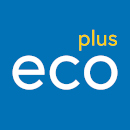
Project Stop Waste Save Food
Issue
Is it possible to improve the protection of food quality and at the same time reduce the amount of packaging material used and can this help to reduce food waste? How can an ecological and economic optimization of the entire system be achieved?
Approach
To answer this complex of questions, the Plastics Cluster and the ecoplus Food Cluster Lower Austria have joined forces with Denkstatt GmbH, OFI and the BOKU Institutes for Waste Management and Food Technology and initiated the “Stop Waste - Save Food” project, funded by the FFG in the Collective Research Program. The focus was on considering certain product groups together with the associated packaging solution in all the necessary details of the life cycle assessment. To do this, several existing knowledge gaps had to be filled. On the one hand, optimized packaging solutions for specific types of food were designed and tested. On the other hand, the previously poor data on how end consumers handle food packaging had to be improved through surveys. An important partner of the consortium were the retailers, which have access to this important target group.
Result
In many cases there is a trade-off between different factors that influence the overall carbon footprint of a packaging solution: The recyclability of a packaging, its barrier properties, the actually achievable extension of the shelf life of the packaged food. A detailed life cycle assessment of specific packaging solutions for specific groups of foods can lead to holistically optimized solutions. The results of the survey on how consumers handle food packaging and the recommendations for individual product groups (coffee capsules, fresh meat, mini cucumbers, cherry tomatoes, strawberries, cream cheese,...) were summarized in a clear guide.
Contact
Plastics Cluster
Thomas Gröger
+43 664 848 26 97
